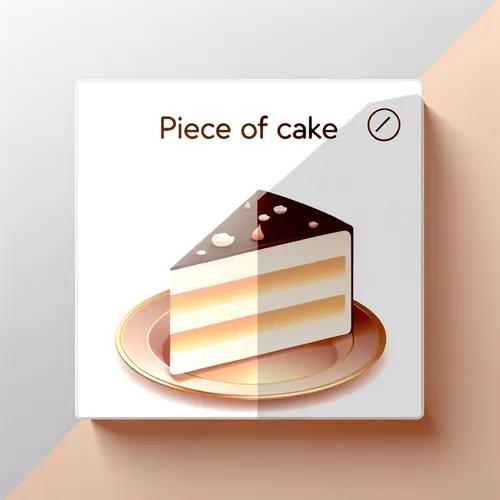Piece of Cake Mindset: How Language and Breaking Down Tasks Can Transform Impossible Challenges into Achievable Goals
- Author
- Quiet. Please
- Published
- Sat 02 Aug 2025
- Episode Link
- https://www.spreaker.com/episode/piece-of-cake-mindset-how-language-and-breaking-down-tasks-can-transform-impossible-challenges-into-achievable-goals--67230708
Welcome, listeners. Today, we’re digging into the phrase “piece of cake”—why it feels so satisfying to say, the psychology behind perceived difficulty, and how people transform the impossible into something that really does feel as easy as pie. The phrase “piece of cake” has come to mean something remarkably easy, and its origins are as rich as they are telling about human psychology. According to Grammarist and other language historians, it’s linked to the “cakewalk,” a dance that originated as a satirical performance among enslaved Black Americans, with the best dancers winning a cake as a prize. Over time, the cakewalk became associated with something done with little effort, and by the 1930s, Ogden Nash popularized the specific phrase we use today. What’s fascinating is that calling a challenge “a piece of cake” is about more than idiom. It shapes our attitudes—from self-doubt to confidence. This shift isn’t just linguistic. Researchers in cognitive psychology have long noted the impact of labeling. When you tag a task as easy, you’re subtly priming yourself to approach it with less anxiety and more resourcefulness.
In today’s fast-paced world, news often reminds us of ordinary individuals achieving the extraordinary—a 2025 headline highlighted a young coder who developed accessible AI tools for the visually impaired, a task many experts once thought out of reach. In her interview, she credited the breakthrough to dividing the project into micro-tasks. Breaking down daunting goals strips them of their intimidation. It’s a principle echoed by athletes, entrepreneurs, and even astronauts: every “impossible” mission becomes doable when you take it step by step.
We reached out to Everest climber Samira Choudhury, who said, “The summit looks overwhelming from base camp. But one section at a time? Each part is a piece of cake.” Studies back this up; our brains crave closure and celebrate small wins, creating a cycle of motivation.
So, listeners, next time you’re facing an enormous challenge, remember: how you describe it—and how you dissect it—can mean the difference between feeling overwhelmed and feeling empowered, one piece at a time.
